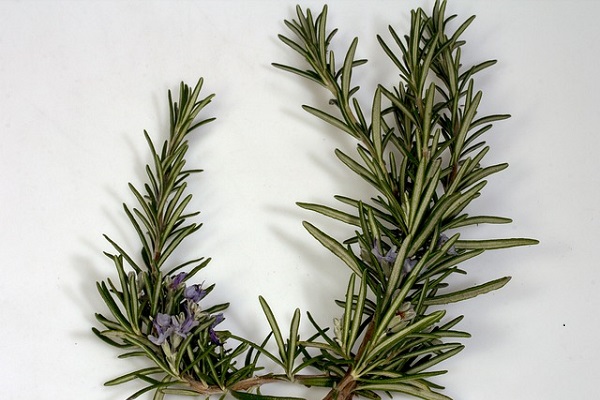Words: Team THINKWELLNESS360
Herbalists have traditionally used rosemary as an anti-fungal and antiseptic, and also as an effective herbal ‘ammo’ to improve memory, relieve muscle pain and spasm, activate hair growth, and support our circulatory and nervous systems.
What’s more, rosemary, according to native medicine, is useful to ease menstrual cramps, enhance urine flow, and decrease kidney pain — especially from stones. In one study on a group of people with alopecia areata, a disorder of unknown aetiology [origin/cause] characterised by significant hair loss, but generally in patches, subjects who massaged their scalps with rosemary and other essential oils — including lavender, thyme, and cedar wood — every day for seven months experienced significant hair re-growth in comparison to a group that did not apply the essential oils. Although the study was not clear whether rosemary — or, a combination of the herb and other essential oils — was responsible for the beneficial effects, subjective testimonies on the efficacy of the potion are legion. Agreed it will take a while for science to ‘fancy’ such results, more so until verifiable precepts, if not percepts, emerge from newer studies.
Rosemary provides a mere 131 calories per 100gm; it contains no cholesterol. It provides adequate dietary fibre and is rich in vitamin B-complex, such as folic acid, pantothenic acid, pyridoxine, and riboflavin. It also contains a high level of folates. Folates are important constituents in DNA synthesis and when given to expectant mothers can help prevent neural tube defects in new-born babies. Rosemary contains high amounts of vitamin A, essential for vision, maintaining healthy mucous membranes and skin. Vitamin A is also known to protect the body from lung and oral cancers. Besides, fresh rosemary is a good source of vitamin C — the celebrated antioxidant.
Rosemary is available in the following forms: dried whole herb; dried, powdered extract, in capsule form; preparations derived from fresh, or dried leaves, such as tinctures, infusions, liquid extracts, rosemary wine, and volatile oil for external use [Note: The oil should not be ingested].
Most adults may take the following doses of rosemary [Caution: one should make sure that the total daily intake does not exceed 4-6gm of the dried herb]. Rosemary tea should not exceed three cups a day [You’d need to prepare your rosemary tea by using the infusion method of pouring boiling water over the herb, and then soaking it for 4-5 minutes. If you can’t get the fresh herb, you may use 6gm of the powdered herb in two cups of water. Once you are through, you may divide this into three small cups, and drink it during the course of the day].
- Tincture: [ratio: 1:5 in water]. 2-4ml, thrice daily
- Fluid extract: [1:1 in 45 per cent alcohol]. 1-2ml, 3-4 times, in some water, daily
- Rosemary wine: 20gm herb to one litre of purified alcohol; allow it to stand for five days, and shake occasionally. Take in small doses
- Externally: rosemary may be used as essential oil [6-10 per cent]: 2 drops in one tablespoon base oil; or, as decoction [Place 50gm herb in one litre water, and boil. Allow it to stand for half-hour. You may also add it to bath water]
- Capsule: 500mg, 1-2 times a day, as a food supplement, or as advised by your therapist.
Most natural medicine physicians consider rosemary in suggested doses safe. However, there have been reports of allergic reactions in certain individuals. Some clinicians suggest that large quantities of rosemary leaves owing to their volatile oil content, may, at times, cause certain side-effects, including vomiting, spasm and, in extremely rare cases, pulmonary [lung] oedema. They also caution pregnant, or breastfeeding, women of using rosemary in quantities larger than used in cooking. They contend that excess intake of rosemary may lead to abortion and/or cause harm to the foetus, or the breastfed child.
New studies indicate that rosemary oil, taken orally, can trigger convulsions in certain individuals. Hence, it is prudent to avoid oral oil intake. As for those with a known history of allergy to camphor, and other oils, certain preparations containing rosemary oil could be potentially harmful. It is also evidenced that rosemary extract could exaggerate the effectiveness of the drug, doxorubicin, for example, in treating human breast cancer cells. While large-scale studies would be needed to verify, or infer, such ‘outcomes,’ it would be imperative for individuals taking the drug to consult their therapist, before using rosemary in any form.

